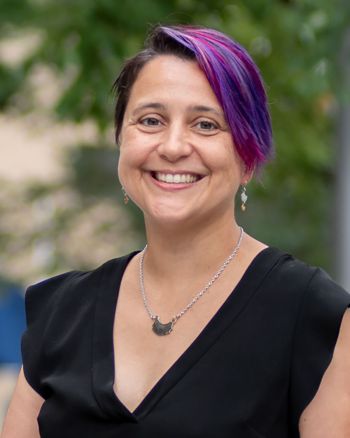
A study by Mandi Pratt-Chapman, PhD, associate center director for patient-centered initiatives and health equity at the George Washington University (GW) Cancer Center, and Adam R. Ward, a PhD candidate in the Milken Institute School of Public Health at GW, identified a new factor within an existing measure of homophobia called the Index of Attitudes toward Homosexuals, or the IAH.
In “The Index of Attitudes toward Homosexuals: Factor Analysis in a National Sample of Oncology Clinicians,” published in the Journal of Homosexuality, Pratt-Chapman, who served as lead investigator, fielded the IAH to over 400 oncology clinicians. The IAH, originally conceived in 1980, was initially used as a one-factor measure of homophobia. A subsequent study, which focused on a group of predominantly female social science students, identified a two-factor structure within the measure: cognitive/social distance and affective/attraction-advances.
“This represents the largest sample for the IAH and the only oncology-specific sample,” Pratt-Chapman said. “However, a lot has changed since 1980. This study contributes to use of the measure by distinguishing between acceptance of feelings of same-sex attraction and one’s willingness to approach or avoid gay and lesbian people. These nuances are important to distinguish given less social acceptance of explicit homophobia today.”
Pratt-Chapman and Ward termed the factors avoidance, approach, and acceptance. According to the study, given the diversity, size, and strength of the group of participants, future studies using the IAH would benefit from reporting findings according to these three factors.
In an earlier study, Pratt-Chapman reported the attitudes of the same oncology sample, noting that anti-gay bias was more common among male oncology clinicians and those reporting less cultural competency training. In addition, male clinicians were more likely to avoid gay people than female oncology counterparts.
“Sexual and gender minorities continue to experience discrimination and bias in health care,” Pratt-Chapman said. “Use of the three-factor structure of the IAH can help researchers report more precise findings when analyzing data related to homophobia and other negative attitudes toward queer patients.”


